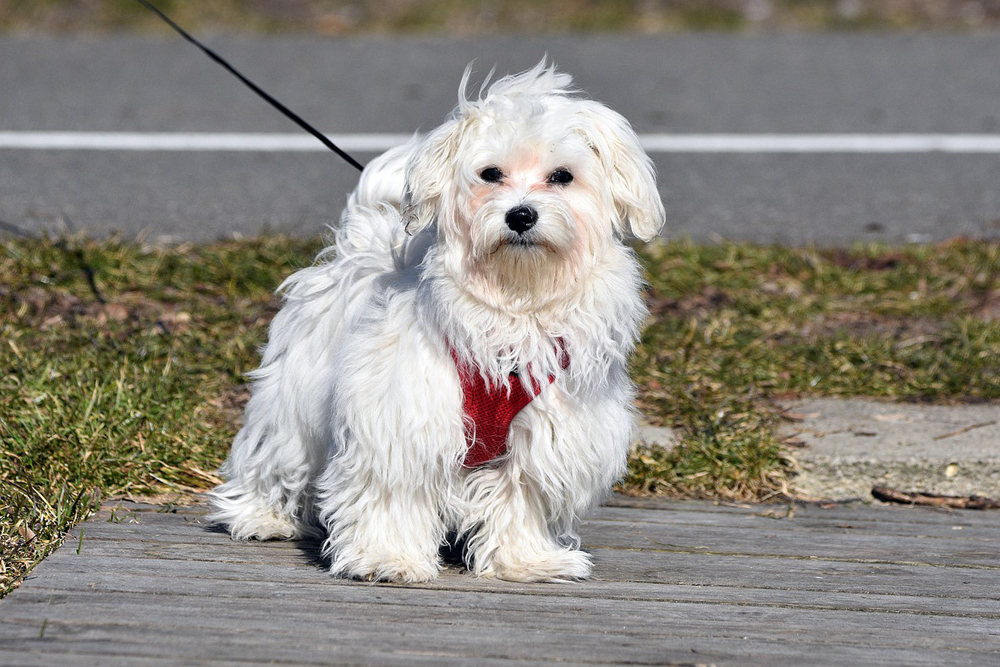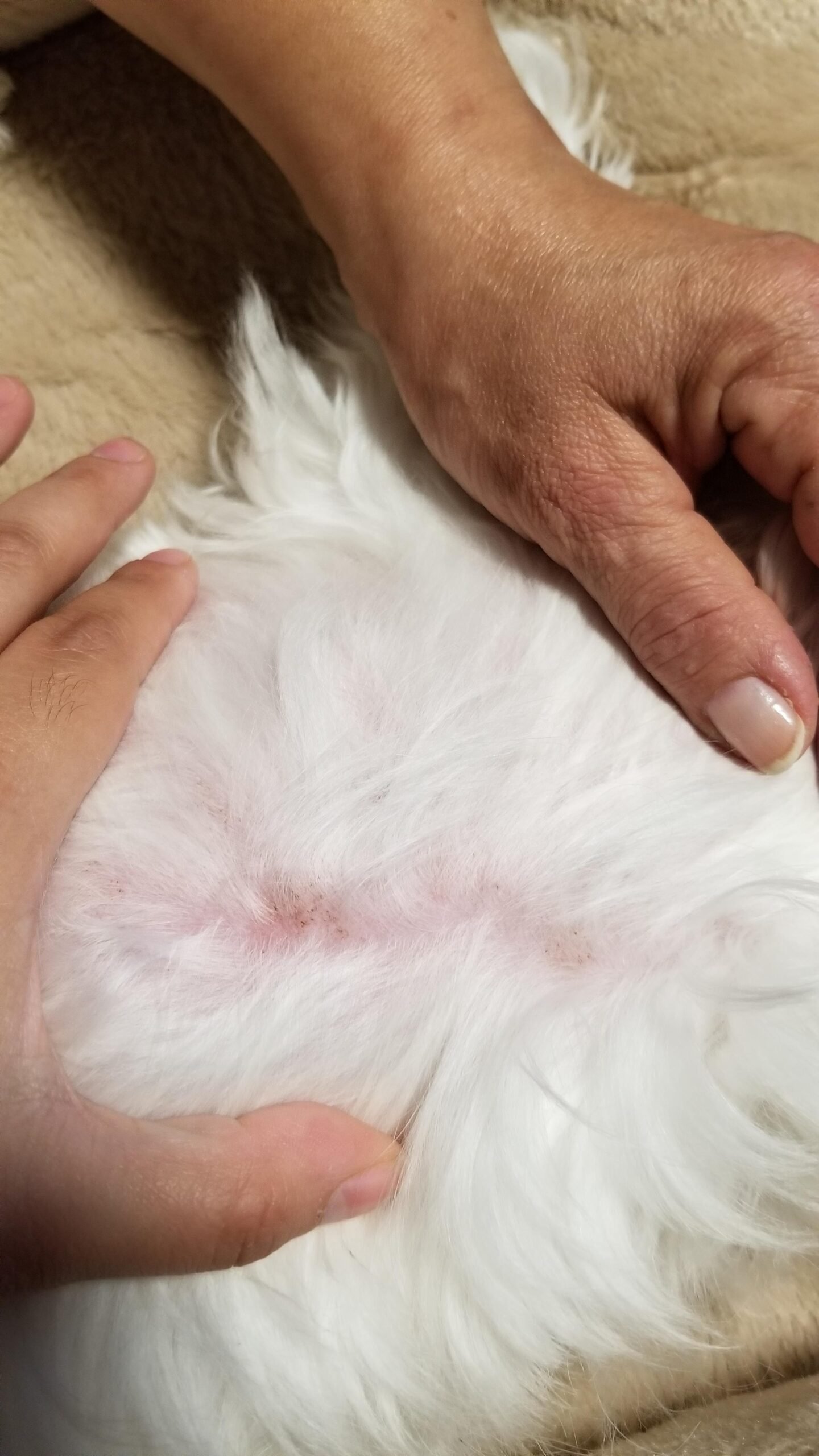Did you know that even the adorable and fluffy Maltese can fall victim to pesky fleas? These tiny parasites can invade any type of dog, regardless of their size or breed. So, if you thought these tiny companions were immune to fleas, think again!
Despite their beautiful and clean appearance, Maltese dogs are not exempt from the problem of fleas. Fleas are commonly found in outdoor environments like parks or gardens, and they can easily attach themselves to your beloved Maltese during walks or playtime. Regular grooming and frequent checks for fleas are essential to keep your Maltese free from these irritating pests. With proper prevention methods, such as using flea preventatives recommended by your veterinarian, you can ensure your Maltese stays happy, healthy, and flea-free.
Maltese dogs can indeed get fleas, just like any other dog breed. Fleas are small parasitic insects that can infest your furry friend’s coat, causing itching and discomfort. It is important to take preventive measures such as regular grooming, using flea prevention products recommended by a veterinarian, and keeping your home clean to minimize the risk of fleas. If your Maltese does get fleas, consult a veterinarian for appropriate treatment options to ensure your pup’s health and happiness.

Can Maltese Get Fleas?
Fleas are a common problem that affects many dog breeds, but can Maltese dogs get fleas too? In this article, we will explore the susceptibility of Maltese dogs to fleas, the risks associated with flea infestations, and how to prevent and treat fleas in Maltese dogs. If you are a Maltese dog owner or considering getting a Maltese, read on to learn more about this important topic.
What Are Fleas and How Do They Affect Dogs?
Fleas are small, wingless insects that feed on the blood of mammals, including dogs. They can cause a range of health issues for dogs, including skin irritation, dermatitis, allergies, and even transmit diseases like tapeworms and Bartonella infection. Fleas reproduce quickly and can infest a dog and its environment in a short period of time. It is important to take preventive measures and treat any signs of flea infestation promptly to protect your furry friend’s health.
Are Maltese Dogs More Susceptible to Fleas?
Maltese dogs are no more or less susceptible to fleas compared to other dog breeds. While their long, flowing coats may create an illusion of being more prone to fleas, it doesn’t make them inherently more attractive to fleas. However, the dense coat of a Maltese can make it challenging to detect fleas or flea dirt, which are tiny black specks that indicate the presence of fleas. Regular grooming and thorough inspections are essential for spotting any signs of fleas on your Maltese dog.
Additionally, factors such as the dog’s lifestyle, exposure to other animals, and the environment play a significant role in determining the risk of flea infestation. If your Maltese spends a lot of time outdoors, interacts with other animals, or frequently visits places with a higher likelihood of flea exposure, their chances of getting fleas may increase. It’s important to be proactive in preventing fleas by using preventive measures like flea prevention products and keeping your Maltese’s living areas clean.
To ensure the health and well-being of your Maltese, it is crucial to implement a comprehensive flea prevention and control regimen. This includes routine grooming, regular checks for fleas or flea dirt, and using veterinarian-recommended flea prevention products. Regular visits to the veterinarian can also help in monitoring your Maltese’s overall health and addressing any flea-related concerns.
Preventive Measures for Fleas in Maltese Dogs
Preventing fleas in Maltese dogs involves a multi-faceted approach that includes both environmental and pet-focused strategies. Here are some effective preventive measures:
- Use veterinarian-recommended flea prevention products: There are various flea prevention products available, such as spot-on treatments, oral medications, and flea collars. Consult with your veterinarian to determine the most suitable option for your Maltese.
- Maintain a clean living environment: Regularly vacuum your home, especially areas where your Maltese spends most of their time. Wash bedding and blankets regularly and consider using flea sprays or powders in your home.
- Groom your Maltese regularly: Brush your Maltese’s coat thoroughly to remove any flea dirt or eggs. Regular grooming not only keeps your dog’s coat healthy but also helps you detect and address any signs of fleas.
- Avoid exposure to fleas: Limit your Maltese’s contact with other animals, especially those with visible signs of fleas. Avoid taking your Maltese to areas known for high flea prevalence, such as heavily wooded areas.
- Keep your Maltese on a balanced diet: A healthy diet can help strengthen your Maltese’s immune system, making them less attractive to fleas and more capable of fighting off infestations.
FAQs about Fleas in Maltese Dogs
Can indoor Maltese dogs get fleas?
Yes, indoor Maltese dogs can still get fleas. While indoor dogs have a lower risk of flea exposure, it is still possible for fleas to be brought into your home through visitors, other pets, or even on your own clothes. Regular preventive measures and inspections are crucial for indoor Maltese dogs as well.
What are the signs that my Maltese has fleas?
Signs that your Maltese may have fleas include excessive scratching, biting or licking certain areas of their body, visible black specks (flea dirt) in their coat, and the presence of fleas on their skin. If you notice any of these signs, it is important to address the issue promptly.
How often should I groom and check for fleas on my Maltese?
Grooming and checking for fleas should be done regularly, ideally at least once a week. Pay close attention to areas where fleas are commonly found, such as around the neck, ears, and groin area. Thorough grooming and inspections can help identify fleas or flea dirt early on, allowing for timely intervention.
Are there any natural remedies for treating fleas in Maltese dogs?
While there are various natural remedies that are said to repel or treat fleas, it is important to consult with your veterinarian before using any of them. Some natural remedies may not be effective or can even be harmful to your Maltese. Your veterinarian can guide you on safe and effective natural options, if appropriate for your dog’s specific needs.
Conclusion
Maintaining a flea-free environment for your Maltese is crucial for their overall health and well-being. While Maltese dogs are not inherently more prone to fleas, implementing regular preventive measures and promptly addressing any signs of flea infestation is essential. By following proper grooming practices, using veterinarian-recommended flea prevention products, and keeping your Maltese’s living areas clean, you can help protect them from the discomfort and health risks associated with fleas. Stay vigilant and consult with your veterinarian for personalized guidance and recommendations for your beloved Maltese.
Key Takeaways:
- Yes, Maltese dogs can get fleas just like any other dog breed.
- Fleas can cause itching, irritation, and even lead to more serious health issues if not treated.
- Regular grooming and flea prevention measures can help keep your Maltese free from fleas.
- Using flea prevention products recommended by your veterinarian is essential for effective flea control.
- If your Maltese has fleas, consult your veterinarian for the best treatment options.
Frequently Asked Questions
1. Can Maltese dogs get fleas?
Yes, Maltese dogs can indeed get fleas. Despite their long, luxurious fur, Maltese dogs are not immune to fleas. Fleas can easily hide in their dense coat, making it important for Maltese owners to be vigilant in preventing and treating flea infestations.
To protect your Maltese from fleas, regular flea prevention measures should be taken. This includes using flea prevention products specifically designed for dogs, such as spot-on treatments or flea collars. Additionally, keeping your Maltese’s living environment clean and vacuuming regularly can help eliminate fleas and their eggs.
2. What are the signs that a Maltese has fleas?
There are several signs that may indicate that a Maltese has fleas. One of the most common signs is excessive scratching and biting, particularly around the base of the tail and on the abdomen. You may also notice small red bumps or irritated skin on your Maltese’s body.
Additionally, if you observe tiny black specks on your Maltese’s fur or bedding, it may be flea dirt, which is actually flea feces. Another sign to look out for is the presence of live fleas or flea eggs on your dog’s coat. If you suspect your Maltese has fleas, it is important to consult with a veterinarian and begin the appropriate treatment as soon as possible.
3. How can I prevent my Maltese from getting fleas?
To prevent your Maltese from getting fleas, regular flea prevention methods should be implemented. Use a flea prevention product that is specifically labeled for dogs, such as spot-on treatments, oral medications, or flea collars. These products typically contain ingredients that repel and kill fleas.
In addition to using flea prevention products, maintaining a clean living environment is essential. Vacuum your home regularly, paying extra attention to areas where your Maltese spends a lot of time. Washing your Maltese’s bedding frequently in hot water can also help kill any flea eggs or larvae that may be present. Regular grooming, such as brushing your Maltese’s coat, can also help detect any fleas or flea dirt early on.
4. Can I use over-the-counter flea treatments on my Maltese?
While there are over-the-counter flea treatments available, it is crucial to use caution when using these products on your Maltese. Some over-the-counter flea treatments may contain ingredients that are harmful to dogs, especially smaller breeds like Maltese. It is best to consult with your veterinarian before using any flea treatment on your dog.
Your veterinarian can recommend safe and effective flea prevention products that are suitable for your Maltese. They can also provide guidance on proper application and dosages for your dog’s specific needs. Remember, the health and well-being of your Maltese should always be the top priority.
5. Are there any natural remedies for treating fleas on Maltese dogs?
While there are some natural remedies that may help in controlling fleas on Maltese dogs, it is important to note that they may not be as effective as medical treatments. Natural remedies, such as cedar oil, lavender oil, or diatomaceous earth, are often suggested as alternatives to conventional flea treatments.
However, it is important to consult with your veterinarian before using any natural remedies on your Maltese. They can provide guidance on the safety and effectiveness of these remedies, as well as any potential side effects. Additionally, combining natural remedies with proper flea prevention measures, such as regular grooming and maintaining a clean environment, can help reduce the risk of flea infestation on your Maltese.

Summary
Got a Maltese dog? Wondering if they can get fleas? Here’s what you need to know. Fleas can indeed bother Maltese dogs, just like any other dog breed. These pesky insects can cause itching, discomfort, and even transmit diseases. Regular flea prevention is crucial to keep your Maltese happy and healthy.
To protect your Maltese from fleas, use flea prevention products recommended by your vet. Keep your dog’s environment clean and vacuum regularly. Remember, prevention is key when it comes to keeping your Maltese flea-free, so stay diligent!
